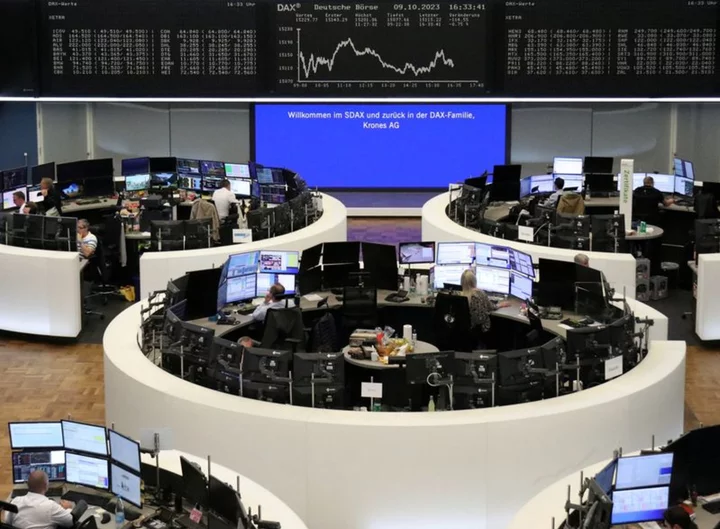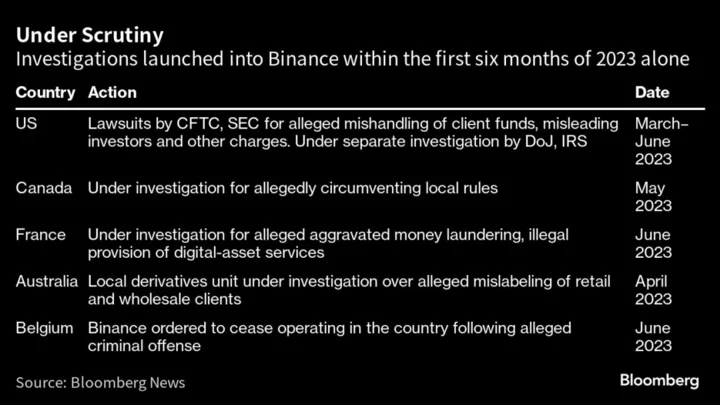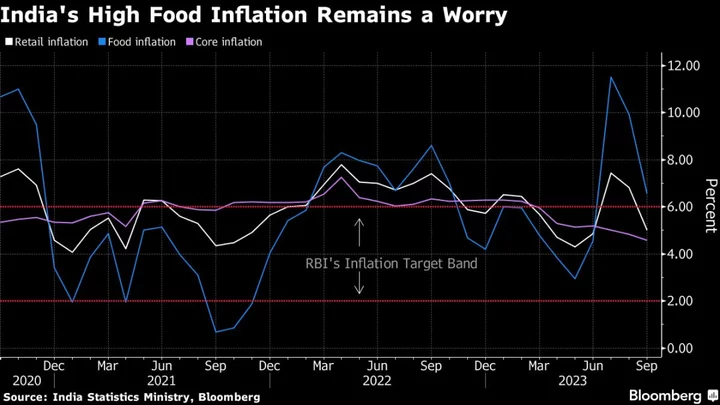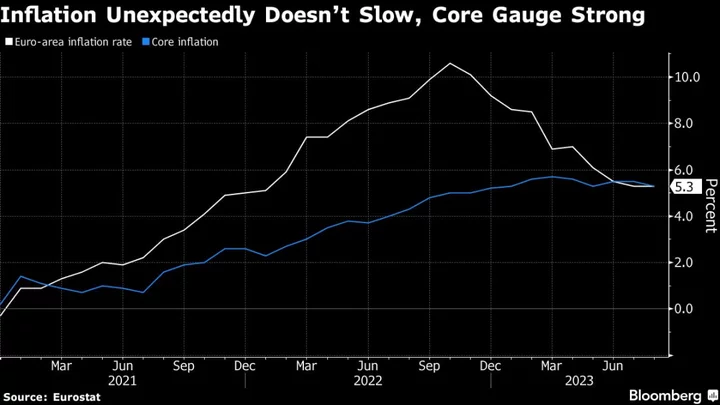By Amanda Cooper
LONDON (Reuters) -Global stocks rose on Tuesday, as a wave of risk appetite swept through markets after Federal Reserve officials signaled the recent yield surge could justify caution on interest rates, while oil eased, but violence in Israel made for nervy trading.
The MSCI All-World index rose for a fifth day, up 0.5%, after having hit five-month lows last week, thanks in part to a 1.6% rise in Europe's STOXX 600.
E-mini futures for the S&P 500 index were up 0.1%, while Treasuries staged a powerful rally, catching up with the decline in yields across global bond markets on Monday when the U.S. market was closed for a holiday.
The rush into perceived safe-haven assets such as the dollar, gold and government bonds at the start of the week eased somewhat, while oil prices, which surged by over 4% at one point on Monday, retreated.
But investors were closely watching military clashes between Israel and the Palestinian Islamist group Hamas, after the latter unleashed a surprise assault at the weekend in which hundreds were killed and many abducted.
The Israeli military has since said it called up an unprecedented 300,000 reservists and was imposing a total blockade on the Gaza Strip, raising expectations of a possible ground assault.
"Geopolitical tensions are a huge problem for markets, just because the range of outcomes is very wide and, therefore, unless there is a clear direction of travel and development, it's very hard to decide which way prices should go," Berenberg economist Kallum Pickering said.
"Markets are telling us at the moment we don't need to be worried about an oil shortage, which is fair, and that there is - I would say - a modest increase in demand for safe-havens."
Israeli markets and the shares of companies exposed to Israel have been hit hard. The shekel, which hit a near-eight year low against the dollar the day before, was down 0.3% on the day, while the cost of insuring against the risk of sovereign default surged to its highest since 2016.
THE FED AND YIELDS
Government bonds, which investors tend to turn to in times of geopolitical or financial crisis, have witnessed one of their worst routs in years over recent weeks, given the perception that interest rates could stay much higher for much longer - an environment that does not usually favour fixed income assets.
The yield on 10-year U.S. Treasuries hit its highest since the financial crisis last week, but by Tuesday, was down sharply on those peaks after senior Fed officials noted that the recent rise in Treasury yields could deter the central bank from further rate increases.
"Based on Monday's comments from the Fed, the market is starting to think that the central bank does take greater notice of bond yields after all," ING strategist Chris Turner said.
"However, we suspect that this may not be a defining story for the bond market in that no central bank likes being backed into a corner over what bond yields mean for monetary policy."
The 10-year Treasury yield was last down 8 bps on the day at 4.659%, off Friday's highs at 4.895%.
The dollar held steady against a basket of major currencies, after having spiked on Monday.
Oil prices eased after climbing more than 4% on Monday. Brent crude fell 0.4% to $87.81, while U.S. futures fell 0.4% to $86.03.
Spot gold fell 0.2% to $1,860 an ounce, having traded at one-week highs on Monday.
In Asian markets, adding to the nervousness, China's largest private property developer Country Garden Holdings warned that it might not be able to meet all of its offshore payment obligations when due or within the relevant grace periods.
(Additional reporting by Kane Wu in Hong Kong and Stella Qiu in Sydney; Editing by Kim Coghill, Christina Fincher and Chizu Nomiyama)









